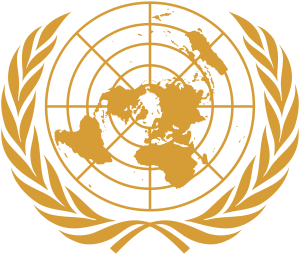International Theatre Institute
The International Theatre Institute ITI is the world’s largest performing arts organization founded in 1948[2] by theatre and dance experts and UNESCO. Dedicated to performing arts, ITI advances UNESCO’s goals of mutual understanding and peace and advocates for the protection and promotion of cultural expressions, regardless of age, gender, creed or ethnicity. It works to these ends internationally and nationally in the areas of arts education, international exchange and collaboration, and youth training.[3] ITI organizes the International Dance Day and World Theatre Day every year at the UNESCO, Paris.[4][5]
 | |
| Abbreviation | ITI |
|---|---|
| Formation | 1948, Prague[1] |
| Type | Specialized agency |
| Legal status | Active |
| Headquarters | Paris, France |
Official language | English, French, |
Head | Tobias Biancone Director-General of ITI |
| Website | www.iti-worldwide.org |
Goals
To achieve its mission, the International Theatre Institute:
- encourages activities and creation in the field of the live performing arts (drama, dance, music theatre);
- aims to expand existing collaborations between performing arts disciplines and organizations, both national and international;
- establishes international offices and fosters the establishment of ITI Centers in all countries;
- collects documents, disseminates all types of information and issues publications in the realm of the performing arts;
- cooperates actively in the development of the "Theatre of Nations" and encourages and coordinates the organization of theatrical congresses, workshops and meetings of experts, as well as festivals, exhibitions and competitions, both on regional and interregional levels, in cooperation with its members;
- defends the free development of the performing arts and contributes to the protection of the rights of performing arts professionals
Organization
ITI is a network in which approximately 92 Centres evolve. A Centre is composed of professionals active in the theatre life of the country and representative of all branches of the performing arts. Its activities are conducted both on a national and international level.[6]
ITI also set up various Committees (or Forums and Groups) in order to focus on specialized areas of the performing arts, such as The Communication Committee (ComCom) dedicated to the study of the role of media communication in promoting theatre, The International Monodrama Forum (IMF)or The International Dance Committee (IDC).
References
- "UNESCO history". UNESCO. Retrieved 23 April 2010.
- Awde, Nick. "ITI Congress, Segovia: Britain returns to the fold of world theatre". The Stage. Retrieved 2018-09-18.
- "Archived copy". Archived from the original on 2012-05-05. Retrieved 2012-01-03.CS1 maint: archived copy as title (link)
- http://portal.unesco.org/culture/en/ev.php-URL_ID=33393&URL_DO=DO_TOPIC&URL_SECTION=201.html
- http://portal.unesco.org/culture/en/ev.php-URL_ID=26680&URL_DO=DO_TOPIC&URL_SECTION=201.html
- "Archived copy". Archived from the original on 2011-12-31. Retrieved 2012-01-03.CS1 maint: archived copy as title (link)
External links
- International Theatre Institute / Martha W. Coigney collection, 1946-2006, held by the Billy Rose Theatre Division, New York Public Library for the Performing Arts